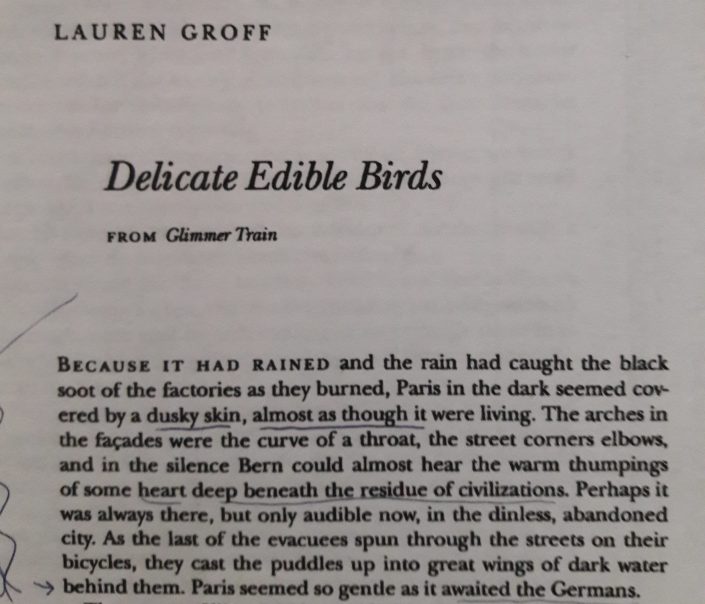First Pages Are Hard – ask any writer.
Writing first pages is hard work. PERIOD.
The expectations of you as a writer are huge, and the expectations of readers is even HUGER (is that a word? Maybe not, okay…) BIG, big reader expectations start on the first page.
Anyway, it takes a lot of work to get it right. One thing to remember, amongst the gazillion other things you need to remember about first pages, is to ground your reader in some details. Which details depend on your story, theme, and your super-powers as a creative genius?
Your first page should, in some way, set up the general question your novel is asking and answering. And hopefully by the last page you will convey an answer to that question.
Meanwhile, the reader should have some idea about the setting right away. For example, what season is it? Where are the characters? What is the time period/special world/era? What is the mood? The elements you convey quickly in the beginning set the stage for the story to follow. And that my writerly friend, is a lofty quest.
Last week in a writing class, I shared the opening to one of Lauren Groff’s stories, Delicate Edible Birds as an example of a great first page/paragraph. This is not only beautiful writing, but also tells us a great deal about; location (Paris) mood (dark), era and conflict (WWII) and weather (rain) all in an imagery filled (wings of dark water…street corners as elbows, etc.) poetic style that seduced  me as a reader, to continue on. (buy her book or Read some of the pretty words in the image to the right. One of my favorite openings ever!)
me as a reader, to continue on. (buy her book or Read some of the pretty words in the image to the right. One of my favorite openings ever!)
A reader should not have to wonder about fundamental questions while trying to slide effortlessly into your story world. This means you’ll have to provide some answers pretty quickly, like on page one.
If you can capture your reader’s curiosity, tickle their emotions, and deliver a character that does the same, then you’ve created a winning first page — one that will engage and mesmerize your audience.
The perfect first page draws readers in from the beginning and tempts them to keep reading. This is your first impression, your chance to hook readers and get them enthusiastic about the story to come. So take the time, use all your creative senses and get it right on page one. It’s not impossible, I promise, and it’s a challenge that’s SO worth it.
Writer Unboxed has a section called “Flog a Pro” where they ask people to read first pages of works by famous authors and then comment on whether or not they were moved to continue. Many say they were not. Reasons include too much detail about the setting or not interested in the characters, but usually the reason was simple—no tension. Reading pages like this is a great way to get some ideas for your own work.
Also, read The First Five Pages, by Noah Lukeman for some great advice on writing your first pages. Good luck.
August 4, 2020 at 2:16 pm
Such good advice but hard to do. Every time I think it’s good I find out it still needs improvement.
LikeLike
August 4, 2020 at 2:28 pm
That’s always the case, when you are open to understanding there’s ALWAYS room for improvement. Life-long apprenticeship.
LikeLike